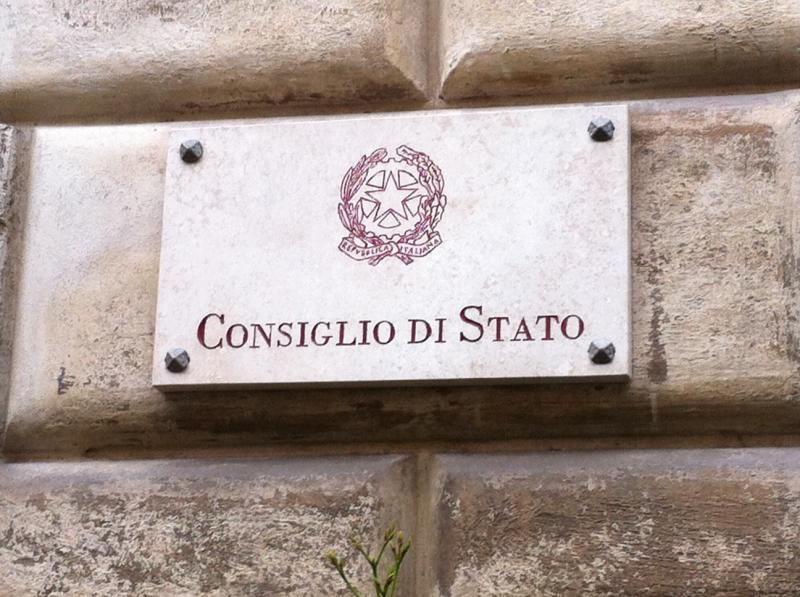Popular banks, that obiter dictum of the Council of State neglected by the press

The speech by Corrado Sforza Fogliani, president of Assopopolari
The detailed ruling of the Council of State in the jurisdiction of May 31 last year went largely unnoticed, due to the fact that the interest was mostly due to the fact that it determined or not the obligation to convert the last bank (out of ten) left unscathed by the Renzi reform But it was a neglect probably due to the fact that certain circles have always frowned upon the capita vote that characterizes this category of banks, preventing it from being conquered by hedge funds.
In reality, the sentence is instead of extreme importance, for one of its obiter dictum that addresses the so-called problem of the holding company, reaching the conclusion that the grounds for appeal in this regard should be considered inadmissible since – on the basis of the clarifications made by the Bank of Italy before the Council of State – "unlike the (rectius: from) appellants, the censured indication could not prohibit the shareholders of a former Popolare from autonomously establishing a holding holding control of a bank joint-stock company, even if resulting from the transformation of the former Popolare in application of the provisions of art. 1, DL n. 3 / '15 ". Basically, thanks to the ruling of the Council of State (pres. Savatino; est. De Luca), it is now deemed possible to transform cooperative banks into joint stock companies – which together would exceed the threshold of 8 billion euros – through the constitution of an intermediate holding company into which one or more banks could converge. And the aggregation of cooperative credit banks (BCCs) could also be verified by following the particular procedures provided for by the law applicable to these banks. These aggregated companies could therefore create territorial banks on a regional basis, with the aim of contributing to the resolution of the economic, social and cultural problems of the regions in which they operate. In the immediate future, local banks could also prove their usefulness by helping to channel in a correct and reliable way the enormous amounts of money that are about to be made available to Italy by the Recovery Fund.
That of the Council of State – albeit in its emblematic conciseness – is therefore an almost revolutionary indication. Moreover, it is – this of the holding company – an easily practicable path and, in any case, certainly more than others, inspired by models used only abroad and, also, authoritatively suggested.
As the President of ABI Antonio Patuelli (Bancaria, n. 4 / '21) recently underlined, “the Thirties (of the '900) were also characterized by the birth of corporatism and the fight against free competition”. It is no coincidence that the legislation of the aforementioned reform almost substantially reproduces a provision of 1927 against local banks, which were also then largely popular – more than a thousand, in the liberal era – and therefore characterized by independence and the lack of nomination of their exponents by the political power.
All over the world, then, the big banks have grown and are growing, in an absolutely majority way, by internal lines, thus fully safeguarding networks of myriads of local banks, which in fact characterize the United States, Canada, Germany itself and also the France (where, even, large banks are based on the cooperative system of Popolari and unlisted shares, therefore not exposed to the whims of the stock exchange, with the same formula also expanding abroad, as we well know in Italy). On the contrary, Italy no longer even has its own banking system, which in fact remains "Italian" only because in Italy they are the registered offices of the banks located on our territory, however, no longer with prevailing Italian capital, especially if we consider that in spas governs who has 10-20%. The major "Italian" banks – indeed – are 96% and 85% foreign as to their first thirty shareholders; several of them have offices abroad and, specifically, in tax havens; as for the Popolari who turned into spa and survived the reform or in any case the disdain created around them, they went from having a totally Italian capital to having one, again as for the first thirty shareholders, 83% foreign on average, with a bank that reaches 96%. As a result of the advent of the mythical banking oligopoly, we are certainly well advanced, and small and medium-sized enterprises, as well as families, are in difficulty, for the credit aspect, in many areas of the country.
This is a machine translation from Italian language of a post published on Start Magazine at the URL https://www.startmag.it/economia/banche-popolari-quellobiter-dictum-del-consiglio-di-stato-trascurato-dalla-stampa/ on Mon, 12 Jul 2021 08:55:49 +0000.
